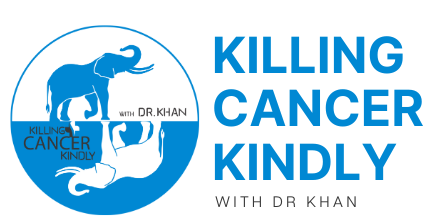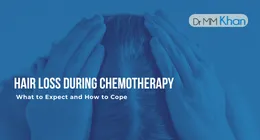What to Expect and How to Cope
In the journey of cancer treatment, chemotherapy is a widely used and effective option. However, one of the distressing side effects that many patients experience during chemotherapy is hair loss. Losing one’s hair can be emotionally challenging and may impact self-esteem and body image. In this comprehensive guide, we will delve into the details of hair loss during chemotherapy and provide essential information on coping with this aspect of treatment.
What is Hair Loss During Chemotherapy?
Hair loss, also known as alopecia, is a common side effect of chemotherapy. It occurs due to the potent drugs used to target rapidly dividing cancer cells, which can inadvertently affect healthy cells, including hair follicles. The extent and pattern of hair loss may vary depending on the type and dosage of chemotherapy drugs administered and also varies from one individual to another.
Why Does Hair Loss Occur During Chemotherapy?
Chemotherapy drugs target rapidly dividing cells because cancer cells divide rapidly. Unfortunately, hair follicles also fall into this category, as they are among the fastest-growing cells in the body. When chemotherapy drugs circulate in the bloodstream, they can reach hair follicles and disrupt their growth cycle, leading to hair loss.
When Will Hair Loss Occur During Chemotherapy?
Hair loss typically starts within 2 to 4 weeks after initiating chemotherapy treatment. The timing may vary depending on the specific drugs used in the regimen. Some patients may notice hair thinning, while others may experience significant hair loss. Understanding the timeline can help patients prepare emotionally for this challenging phase. Some patients opt to have their hair shaven early to avoid the trauma of daily hair loss and patchy bald spots.
What are the Other Side Effects of Hair Loss During Chemotherapy?
Apart from hair loss, some individuals undergoing chemotherapy may also experience:
- Scalp Sensitivity: As the hair starts to fall out, the scalp may become more sensitive to touch and temperature changes.
- Skin Irritation: Some patients may develop mild skin irritation or itching as the hair diminishes.
- Emotional Distress: Hair loss can be emotionally distressing, leading to feelings of vulnerability and self-consciousness.
- Body Hair Loss: In addition to scalp hair, chemotherapy may cause the loss of body hair, including eyelashes and eyebrows.
Will I Lose All My Hair During Chemotherapy?
The extent of hair loss varies from person to person and depends on the chemotherapy regimen. While some individuals experience partial hair loss or thinning, others may undergo complete hair loss. Losing all of one’s hair is known as Alopecia Universalis.
Will I Lose My Eyelashes and Eyebrows During Chemotherapy?
Yes, it is common for patients undergoing chemotherapy to experience the loss of eyelashes and eyebrows in addition to scalp hair. This can impact the facial appearance and may be emotionally challenging for some individuals. Understanding this potential side effect can help patients prepare and explore strategies for coping.
When Will My Hair Start Growing Back After Chemotherapy?
The regrowth of hair after chemotherapy varies for each person. In most cases, hair starts to grow back within a few weeks to a few months after the completion of chemotherapy treatment. Initially, the hair may appear thin and fine, but with time, it tends to regain its normal texture and thickness. Sometimes the new hair growth has a different color and consistency compared to the original hair.
What if My Hair Comes Back Thin or Different?
It is essential to remember that hair regrowth can be a slow process, and the texture may be different from your pre-chemotherapy hair. Hair may come back curlier, straighter, finer, or coarser than before. It is a natural part of the regrowth process, and over time, the hair usually returns to its original state.
How Can I Cope with Hair Loss During Chemotherapy?
Coping with hair loss during chemotherapy can be emotionally challenging, but there are various strategies and support resources available to help:
- Head Coverings: Wearing headscarves, hats, or wigs can provide comfort and help conceal hair loss.
- Support Groups: Joining support groups with other cancer patients can provide a safe space to share experiences and emotions.
- Talk to Your Doctor: Discuss your concerns with your healthcare team, as they can offer guidance and reassurance.
- Embrace Your Appearance: Remember that hair loss is temporary, and your strength and resilience shine beyond physical appearance.
- Hair Care During Treatment: Use gentle hair care products and avoid heat-styling tools to protect and care for existing hair.
- Consider a New Hairstyle: Some patients may choose to embrace the opportunity to try out new hairstyles or hair accessories.
Can Hair Loss During Chemotherapy be avoided?
There have been attempts to preserve hair during chemotherapy. One of the methods used is a cold cap. A cold cap is a cooling hat that is worn during chemotherapy usually fifteen minutes before starting treatment. Its cooling effect reduces blood flow to the scalp and hence reduces the amount of chemotherapy medication that reaches this area. This can help to prevent hair loss but success rates vary with only half the patients benefitting from it. Its use can also result in patchy hair loss. There is a theoretical risk of reducing treatment efficacy as less chemotherapy reaches the scalp and if there are any cancer cells in the area they have a higher chance of survival.
Conclusion
Hair loss during chemotherapy is a challenging aspect of cancer treatment, but it is essential to remember that it is a temporary condition. Understanding why it occurs and being aware of potential side effects can help patients better prepare for this phase. Coping with hair loss may involve embracing different head coverings, seeking emotional support, and maintaining a positive outlook. Remember, you are not alone on this journey, and there are resources available to support you every step of the way.


